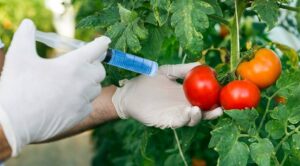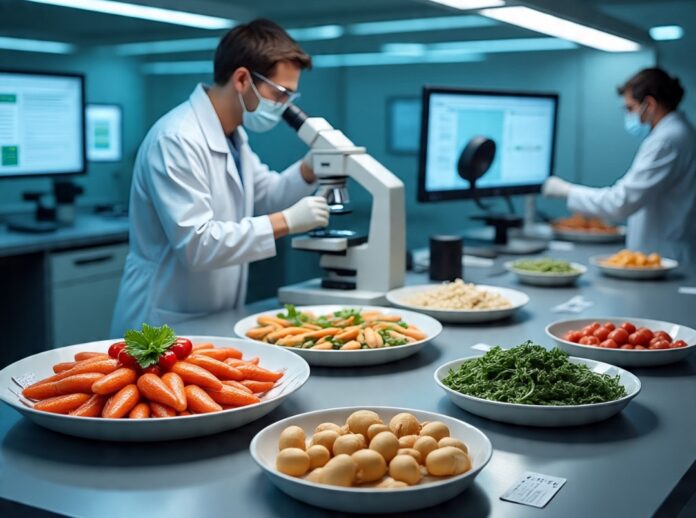By Prof. Shima Igyoh
Our ancestors had been doing this for crops we eat since humanity stopped depending on collected wild foods and started farming. In traditional farming, if you want to improve your crops, perhaps produce bigger and better yams, each planting season you must select the seeds from the best yams for planting. If you want bigger and better melon seeds, you must select and plant such seeds from your harvest. All village farmers knew that, when planting, one must select the best. Mind you, the changes were usually small, hardly perceptible over short periods.
Improvement of crops, therefore, needs continuous action over several generations of not just the crop, but also of the farmers! By selective planting, something gradually happens to the seeds of the crop, and the desired improvement may take years, but when it does, the crop “breeds true.” That is to say that the improvement is passed on to all future generations of the crop. With the advance of the science of genetics, scientists have studied and compared the genes of the old and the improved crops, and discovered, in some cases, the exact changes that happen inside the elements (genes) that transmit characters to successive generations of the crop.

Genes are the elements inside seeds that make planted rice grow into rice and not egusi or any other different plant! Moreover, scientists can now manipulate these genes, even introduce them to different plants, usually of the same species to produce the desired changes. This is the magic of genetically engineered or modified organisms (GMO) that used to take our ancestors years, over several generations to achieve. It can now be done in the laboratory! Refusing to accept the advance is like insisting you would continue travelling by donkey rather than flying by airplanes.
Bigger, better and improved crops can upgrade the status of both the small manual and the big industrial farmer. It can overcome the shortage of food caused by changes in weather and growth of populations. This can be considered one of the best advancements that can serve humanity. But man’s constant companion that changes most good progress to destructive tragedies, His Excellency Satan, always intervenes!
Enter Monsanto, an American agrochemical and agricultural biotechnology corporation founded in 1901 in Missouri. It discovered glyphosate, a chemical that when sprayed on growing wheat, for example, would kill weed without adversely affecting the crop. Monsanto marketed it under the name “Roundup.” It became the main ingredient in widely used weedkillers and made the company very wealthy. Mind you, the wheat too absorbed little quantities of glyphosate, but it was just resistant to it. This meant consumers of such wheat would also eat glyphosate! Was it safe for humans? That consideration became increasingly worrisome. Worst of all, scientific research into its safety for humans did not produced incontrovertible results one usually expects from science. Some studies said it was carcinogenic to humans, others said it wasn’t, and yet others say “perhaps!”
Such doubts have spilled over to genetically modified organisms. People wonder if we know enough about the changes in the long run to be certain that they are safe. Why did Monsanto spend millions of dollars preventing the passing of a law requiring compulsory labelling to identify genetically engineered products in the foods on sale? If it was just because there was too much prejudice against the process, it is not at all a good idea. Nevertheless, they succeeded, and today we all eat GMO food without knowing it.
Moreover, there was a move by Monsanto to produce wonderful crops whose seeds don’t grow when planted. Any farmer who relies on such crops would have buy new seeds from the company any time they want to plant! Such a condition should never be permitted in any society, and for many it would be a strong incentive to dislike the principle of genetic engineering in agriculture.
Finally, frightening as the term “genetically engineered plant” is, the edible ones are safe food, and the absence of labels to identify them on the market means we eat them without knowing! Let this not intimidate anyone. The wonderful thing about our society is that as soon as any danger is detected, the warning will be generally shared. For the present, there is none, and bon appetite!


